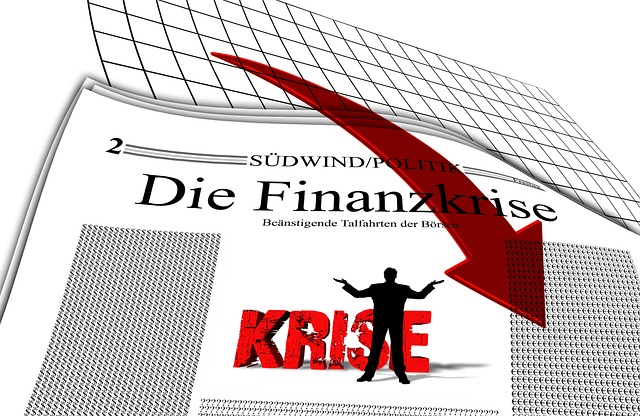In Singapore, companies have the liberty to determine their Financial Year End (FYE). The FYE refers to the conclusion of a firm’s accounting period. Contrary to what many people think, FYE for companies need not be on 31 December. Instead, each business can select an FYE that best suits them. Many companies choose the last date of the 11th month of operation since incorporation as their FYE for the first financial period. This is an attempt to maximize their tax exemption coverage granted to new start-ups for the first three years.
Regulations on Financial Year End (FYE)
To reiterate, the Companies Act does not indicate when a financial year for companies should begin or end. The decision, therefore, is at the company’s discretion. However, businesses are required to follow a few regulations.
However, to prevent companies from arbitrarily changing their Financial Year End (FYE), they must comply with the following regulations:
- Companies are expected to update the Registrar about their FYE after incorporation and in case of any changes
- Companies must seek approval from the Registrar to alter their FYE of:
- If the FYE change will result in an 18-months or longer financial year; or
- if changes to the FYE was made in the last 5 years;
- In the first year following company incorporation, the financial year duration cannot be more than 18 months without approval from the Registrar.
- Only FYE of the immediately previous and current year can be changed (provided the company did not miss statutory deadlines for filing of annual return, the holding of AGM, and sending of financial statements).
According to section 175 of the Companies Act, companies must hold their first AGM within 18 months of incorporation. After that, subsequent annual meetings should be held at less than 15-months intervals. Maximizing the first accounting period is not recommended as it might allow insufficient time to organize financial statements.
Factors to Consider When Choosing the FYE
While many factors are considered when deciding a company’s financial year-end, some aspects play a more vital role. Below is a list of some such factors you may want to consider.
Taxation Period
The taxation or basis period of a company is usually identical to its accounting period. Generally, the first accounting period is also the basis period for the initial year of assessment. Ideally, companies choose their first financial year to end around the 12 months. For, when a financial period is extended more than 12 months it will be considered as two Years of Assessment for tax exemption purposes by IRAS. Therefore, this can maximize a new start-up’s tax exemption coverage for the first three consecutive years. Furthermore, availability and eligibility for certain tax exemption schemes may affect a firm’s FYE selection.
Changes in Government Regulations and Schemes
Government regulations are another factor that might influence a company’s choice of FYE. A company can qualify as an exempt private company if its annual revenue is equal to or less than $5 million. Alternatively, the small company criterion defines whether a company can be exempted from the statutory audit. To qualify under the new law, a company must meet at least two of the below conditions:
- Have total annual revenue of $10 million or less
- Total gross assets of $10 million or less at the end of the reporting period
- Have 50 or fewer employees at the end of the financial year
The Productivity and Innovation Credit (PIC) scheme is another quite popular scheme. However, after the PIC scheme was expedited in 2018, companies had to take into account that expenditure incurred after YA 2018 would not advantage from PIC benefits. On the other hand, companies with FYE in December 2017 were able to maximize the benefits of PIC while still available. This is why considering changes in regulations and schemes is important before deciding on a fiscal year-end.
The Company’s Business Cycle
Contrary to popular concerns, the financial year-end of your company need not be the same as the anniversary of your business incorporation date. Likewise, your FYE doesn’t need to coincide with the conclusion of the calendar year. So, what must a company consider before choosing a date for the financial year-end? Its business cycles.
Truly, your business cycles, which might vary significantly from one company to another, are more related to the financial year-end than any of the aforementioned. For example, businesses that handle high inventory might benefit by selecting a year-end that matches the end of a busy season. The FYE for such business should presumably be around the time when inventory is comparatively lower. This way, less inventory needs to be counted – increasing accuracy and decreasing overall cost. Moreover, it is generally easier to close the books during a quiet time of the year as there are fewer transactions and the support staff has more time to spare.
Holding Company’s FYE
If you are a subsidiary company, you may have to synchronize your financial year-end with that of the holding company. Oftentimes, this is a mandatory requirement as having the same FYE for both subsidiaries and holding companies can help in terms of group reporting.
Other Considerations
While the previously mentioned factors are some of the most common considerations, there are a few other things that companies need to take into account when choosing an FYE. For instance, franchise agreements and joint venture agreements often influence a company’s decision involving the financial year-end.
The Bottom Line
The decision regarding the financial year-end is worth some planning and discussion. Companies always strive to make their financial year-end easy to execute. On top of that, it is common to find a time that is cost-effective and highly tax-advantageous. However, a financial year-end that might otherwise seem to be favorable and in sync with some government regulations may contradict another regulation. A company may have numerous reasons to change its financial year-end but the decision should not be backed by tax benefits only. Instead, the decision should be supported by strong commercial reasons.































